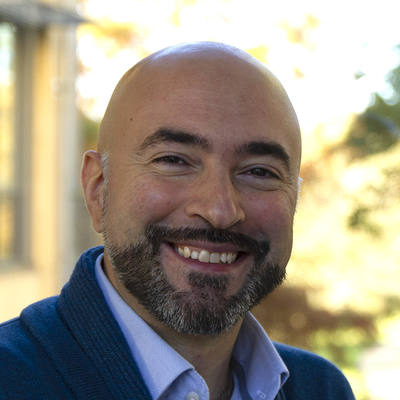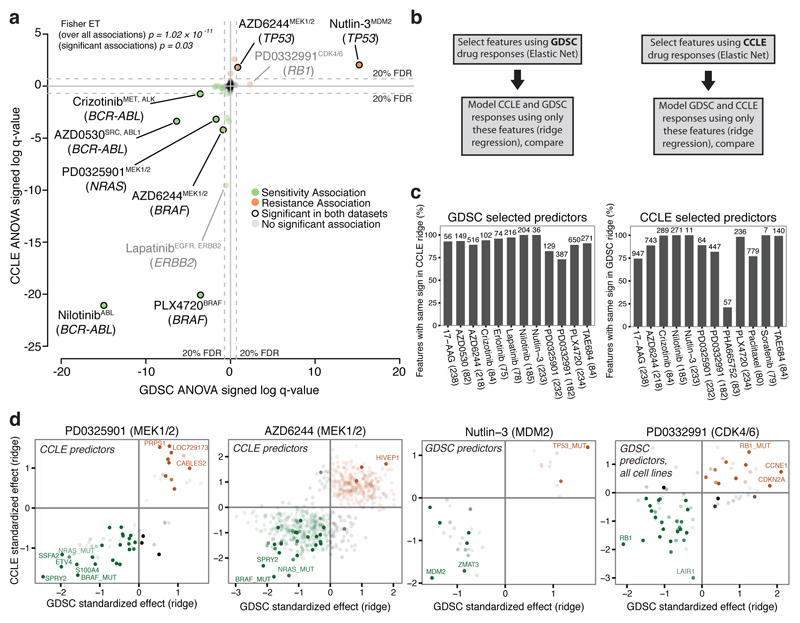
Dr Francesco Iorio
Principal Staff Scientist
Alumni
This person is a member of Sanger Institute Alumni.
Toward this aim, he is responsible for the design of analytical methods and software, and the management of day-by-day operations to deliver scientific milestones toward the definition of a global Cancer Dependency Map: an atlas of genetic dependencies and vulnerabilities, at an individual cancer cell resolution, which could be exploited for the development of cancer targeted and personalized therapies
Francesco completed his PhD in the Systems, Synthetic and Computational Biology Laboratory of the TeleThon Institute of Genetics and Medicine (TIGEM, Naples, Italy), focusing on computational methods for drug discovery and repositioning based on the analysis of large compendia of gene expression profiles. Subsequently he was awarded a joint EMBL-EBI/Sanger postdoctoral fellowship (ESPOD) and he worked on integrative computational frameworks for predicting and dissecting drug susceptibility in cancer based on the analysis of data from large-scale drug screens.
Prior joining CASM at the Wellcome Sanger Institute, he has been the leading computational scientist in a project funded by Open Targets (a public-private initiative spearheaded by EMBL-EBI, GSK, Biogen and the Wellcome Sanger Institute), aiming at identifying new therapeutic targets and synthetic lethalities in cancer, through the analysis of data from a large-scale, genome-wide CRISPR-Cas9 knockout screen across hundreds of cancer cell lines.
Within Open Targets he currently leads the CELLector project to systematically evaluate the disease relevance of cancer in-vitro models, and he has been coleading the DoRothEA project linking trascription factors activities to somatic mutations and cancer response to therapy.
Francesco is also interested in designing computationally efficient methods simulating constrained null models for testing combinatorial properties in cancer genomics datasets and networks; unsupervised machine learning; data visualisation; information theory and theoretical computer science.
My timeline
Became Principal Staff Scientist at WTSI to lead the Cancer DepMap Analytics team
Started as Senior Bioinformatician at EMBL-EBI with Open Targets
Joined Saez-Rodriguez Lab (EMBL-EBI) & McDermott/Garnett Groups (WTSI), as EBI-Sanger Post-Doctoral (ESPOD) fellow
Started PhD at TeleThon Institute of Genetics and Medicine & University of Salerno
Started to work as Research Associate at TeleThon Institute of Genetics and Medicine
Completed Msci in Computer Science at University of Salerno (Italy)
My publications

Strategy to prioritize targets in multiple cancer types, incorporating CRISPR–Cas9 gene fitness effects, genomic biomarkers and target tractability for drug development. ADaM (adaptive daisy model) distinguishes context-specific and core fitness genes. Datasets are available on the project Score website. Part of the Cancer Dependency Map effort (DepMap.Sanger)Behan FM, Iorio F, Picco G, et al. Prioritization of cancer therapeutic targets using CRISPR-Cas9 screens. Nature. 2019. doi:10.1038/s41586-019-1103-9.

Publicly available genomic data for a large cohort of primary tumors analyzed to identify clinically relevant features called cancer functional events (CFEs). The status of the CFEs is observed in a panel of 1,001 fully characterized human cancer cell lines. Cancer cell lines are screened for differential sensitivity against 265 anti-cancer compounds and results used in combination with the CFEs for pharmacogenomic modeling, identifying therapeutic markers and predict anti-cancer drug response with Machine Learning.Iorio F, Knijnenburg TA, Vis DJ, Bignell GR, Menden MP, et al. A Landscape of Pharmacogenomic Interactions in Cancer. Cell. 2016;166:740–54.

Iorio F et al. Discovery of drug mode of action and drug repositioning from transcriptional responses. Proc Natl Acad Sci U S A. 2010;107:14621–6.

Cancer hallmark heterogeneity signatures across cancer types.Iorio F et al. Pathway-based dissection of the genomic heterogeneity of cancer hallmarks’ acquisition with SLAPenrich. Sci Rep. 2018;8:6713.

Garcia-Alonso L, Iorio F et al. Transcription Factor Activities Enhance Markers of Drug Sensitivity in Cancer. Cancer Res. 2018;78:769–80.
